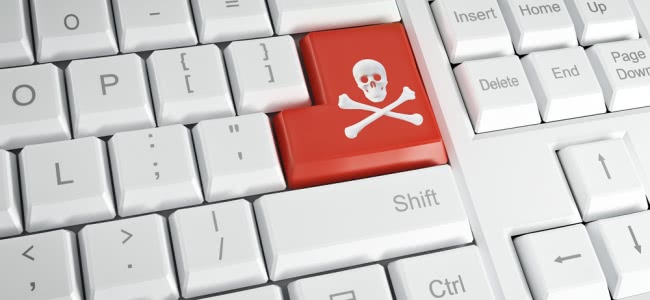Following on from news that DJ Shadow is tackling illegal file-sharing by teaming up with download client BitTorrent to release an album, after yesterday’s report that some of rock’s biggest A-listers – including Led Zeppelin, The Who and Queen – have attacked Google for enabling illegal downloading; the latest entry in the ongoing debate over music piracy comes from our cousins across the water.
According to TVNZ, New Zealand’s recently introduced law concerning a controversial new ‘three strike’ rule towards internet piracy, has halved internet piracy figures since its introduction last year.
Under the new internet copyright laws, users who are caught illegally downloading will be fined up to $NZ 15,000 (approx $AU 11,500) after their ‘third strike’, with a notice issued by the Recording Industry Association of New Zealand (RIAZ).
Labelled a ‘graduated response’ system to combat illegal file-sharing, since the introduction of the controversial policy, the RIAZ have reported a significant drop in piracy levels, including a report with data suggesting whereas before the ‘there-strike’ policy, the top 200 movies of the moment would be illegally downloaded up to 110,000 times in August, that number dropped to 50,000 the following month when the new rules were introduced.
Its assumed that the figures for illegal downloading of music follows a similar trend, but the RIAZ aren’t content with the essential halving of illegal activity. They want to reduce the recently reported figure of 40% of New Zealanders accessing illegal content online; to an even lower percentage.
RIAZ says they’ve issued 2,766 infringement letters, and despite their own figures that reflect a drop in music piracy, major record label representatives want to increase the infringement notices to 5,000. It’s a glass half-full, glass half-empty situation – the new three-strike policy has already provided successful results but the RIAZ’ logic is that if the threat of a few thousand infringement notice can drop the illegal activity so significantly; an increase in delivered notices can further reduce the figures.
To do this however, RIAZ notes that the notice fees need to be cut, from $25 to $2 or less, in order to follow up on the major labels’ desires to catch more illegal downloaders in a cost-effective way. To that end, the RIAZ made a submission to the Economic Development Ministry, to reduce the cost of the notice fees, the record label calling it a matter of ‘educating’ internet users on copyright law.
Internet service providers disagree however, with telecommunication company Telecom – along with ISP’s TelstraClear and Vodafone – argue that the notice fees should be increased, not lowered. They argue that a fee of $104 would be more financially viable, given the sum of $500,000 or more they’ve already spent in complying with the RIAZ notices.
Worse Telecom, TelstraClear and Vodafone have all reported their customers receiving final enforcement notices of the $15,000 fine, but with no further action by RIAZ to take them to the Copyright Tribunal.
In either case, it’s an expensive in spooking internet users out of breaching copyright laws, but New Zealand’s movement on piracy reflects some drastic responses from law-makers and record labels on a global scale.
New Zealand and RIAZ’s ‘three-strike’ policy is a far softer caveat than that of Japan’s, who recently drastically rewrote their copyright laws to severely punish individuals who breach copyright infringement. While more recently, a ruling from the Candian Supreme Court overturned a decision that disallowed royalties of music contained in music and videogames to be awarded to musicians and song publishers, a decision that was good news for internet service providers and bad news for songwriters and owners of copyright.
In related news, the US High Court refused to reduce a student’s $US 675,000 fine for illegally downloading 30 songs, while in Germany a 21-year-old computer science student and his legal team are fighting a legal battle with YouTube, and its owners Google. Saying that his music-ripping website that allows users to convert video content into downloadable .mp3s, has a legal precedent; calling YouTube a public broadcaster much the way that taping off of public broadcasts like TV and radio was considered legal.

































